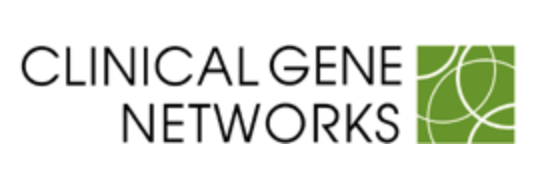
Core Business Model
Four main assets from which CGN seeks commercial values:
• The computational approach and know-how to infer disease driving gene networks
• The AtheroCode database and access to unique CAD clinical samples
• New CAD drug candidates ready for experimental and clinical evaluations
• Plasma markers of obstructive CAD to develop non-invasive diagnostics
Computational know-how: As the name applies, CGN capitalizes on identifying Clinical Gene Networks underlying CAD, MI and stroke. Compared to a "gene one-by-one" approach that has been the ruling strategy for identifying targets of drug candidates under development today, a gene network-based approach has particularly two main advantages;
i) provides the entire wiring-diagram of gene-gene interactions in molecular processes leading to CAD. A diagram that CGN uses to select drug targets at a high hierarchal level in CAD networks that reassures maximal drug effect without entirely shutting down the targeted molecular process (the latter is key since most disease processes also have a physiological role but become exaggerated when causing disease (e.g., inflammation).
ii) allows, at the same time, for every selected network target to be carefully examined for its presence and activity in other tissue and cross-tissue networks to reassure selectivity and avoid, or at least minimize, risk for off-target side effects.
In all, CGNs strategy leads to better-defined drug candidates with better chances to stand the tests of clinical trials and therefore reaching the market. CGNs approach can be used not only for identifying drug candidates, but as a service for general drug (candidate) evaluations. More specifically, CGN can use its networks knowledge to test proof of mechanism, proof of concept and actual disease effects of any chosen drug candidate.
CGN immediate business model is to generate early revenues by establishing agreements with major pharmaceutical companies to perform network evaluation of their CAD drug pipeline. Using CGNs unique "network insights", services to improve pharmaceutical companies CAD drug and diagnostic pipelines will be offered. Better selection of drug candidates will lead to increased appreciation of CGN network approach and thus targets identified by CGN. Currently, Merck Inc. is the only major pharmaceutical company that to CGNs knowledge has many network-derived drug candidates in clinical trials.
The longer term more substantial value growth in CGN will come from in-house developed CAD therapies and diagnostics. CGNs strategy is to develop drug candidates and biomarkers to the level where they are ready for clinical trials: at a point when CGN will seek agreements with major pharmas to take products to the market. These agreement will include signature fees, milestone payments and royalties including licencing fees.
AtheroCode: All data and results from the data analysis is stored in the AtheroCode database. AtheroCode is also the source from which clinical gene networks underlying CAD are identified. The underlying scientific philosophy of CGN is built on the idea that biological mathematics can transform genome-wide data of any sort into information and clinically useful knowledge, which eventually will lead to the full insight into the molecular Code leading to carotid and coronary Atherosclerosis. Thus, the database name, AtheroCode. AtheroCode is not only referring to datasets generated in collaboration with CGNs academic partners but also includes integration with publicly available datasets.
Clinical Sampling: Through the 20 years of its existence, CGN has invested to allow several important patient collections supporting its academic partners. A main theme behind these collections is to gather RNA from as many CAD-relevant tissues as possible. This is to encapsulate the whole complexity of a diseases like CAD. Since the quality biobanks determine downstream value of the generated data (i.e., AtheroCode), CGN has been involved in developing protocols to ensure high quality DNA, RNA and protein isolations in the clinical setting. CGN will continue to support clinical sampling with a special focus on CAD. Particularly, CGN is now seeking to support clinical sampling
Promising result of particularly one master regulator in a network involving leukocyte migration in CAD has lead to the identification of a number of possible drug candidates acting against this key (but not yet targeted) vascular process of CAD. CGN is currently seeking addtional funds to take a smaller selection of the most promising subset of these compounds into experimental testing in animal models and furhter chemical modifications, which if proven successful may lead up to the first clinical trials.
Active agreements: Novo Nordisk and Icahn School of Medicine at Mount Sinai.
Patents: Drug targets and blood biomarkers.
With increasing demands for predictive, preventive and personalized health care, CGNs business model is both timely and well-needed.